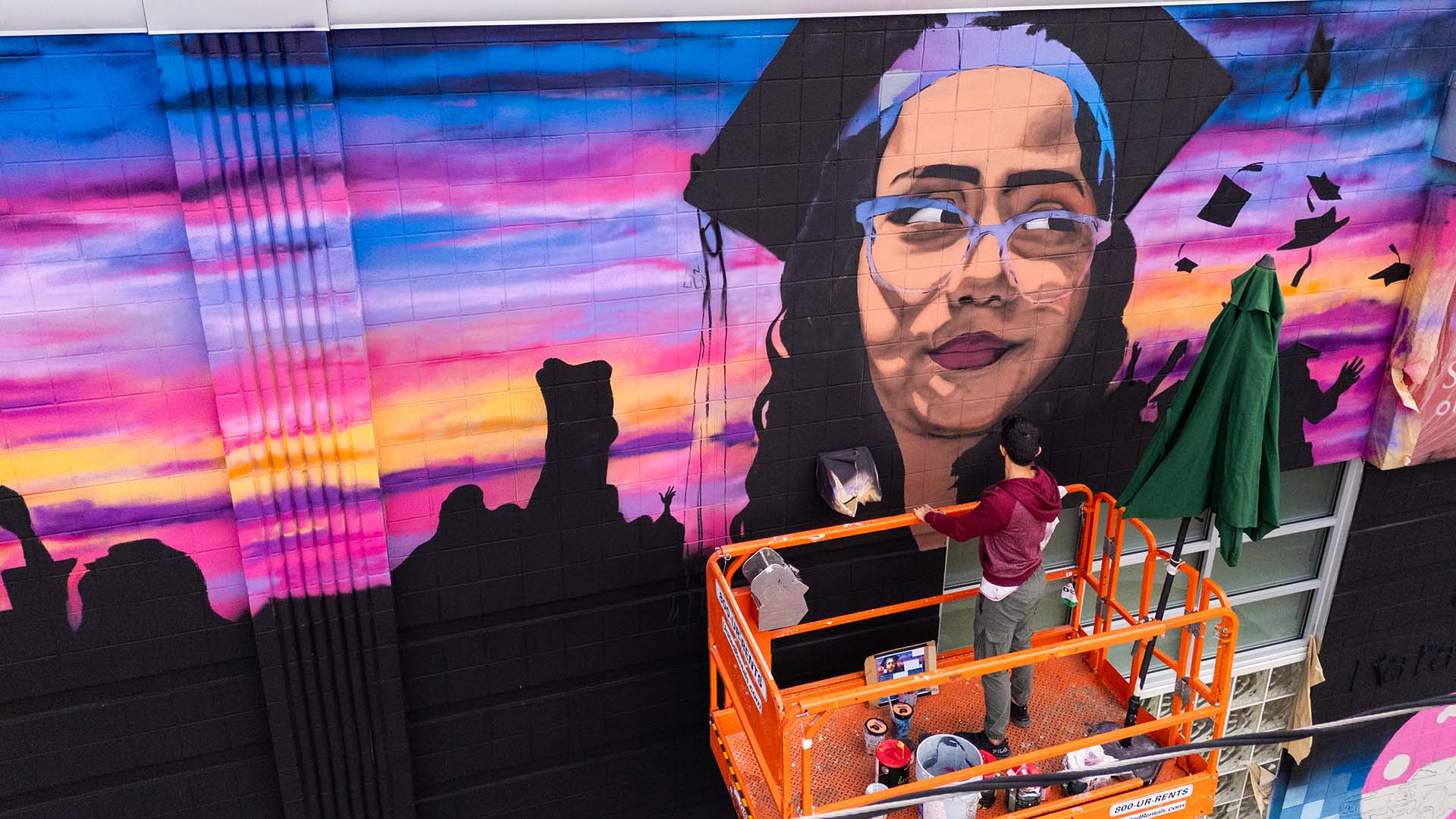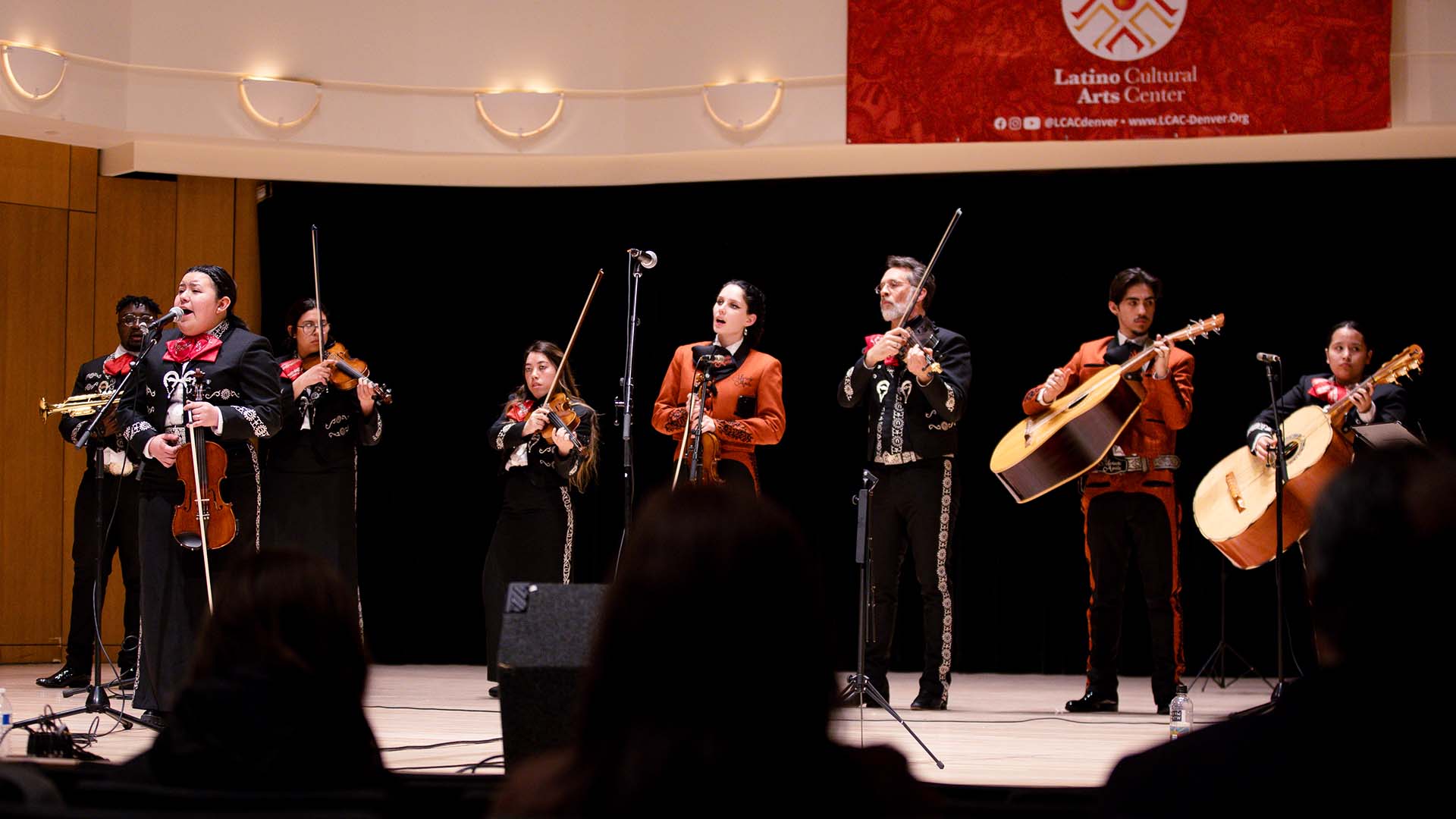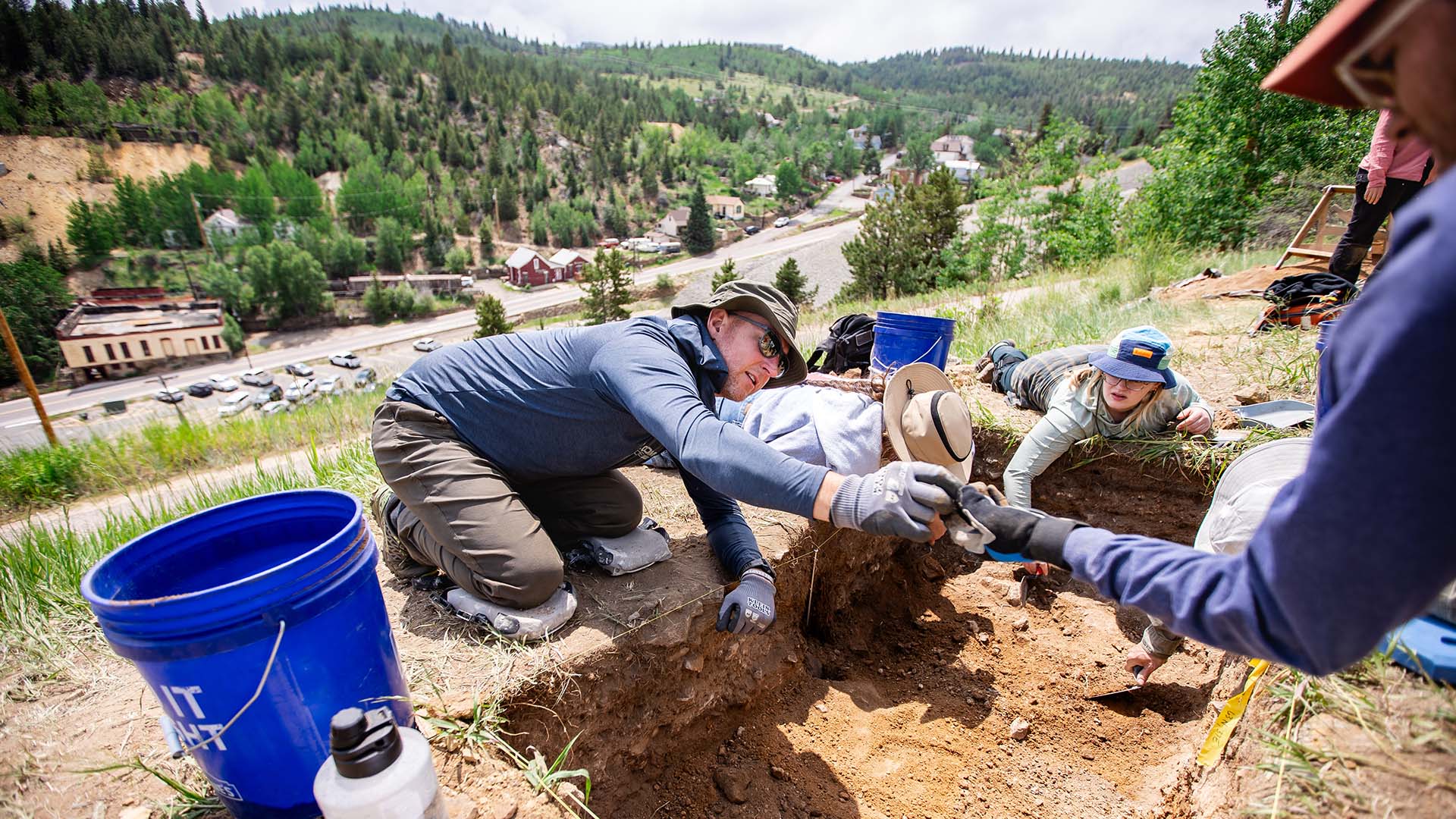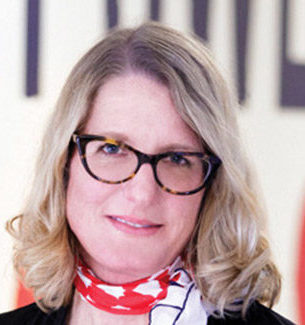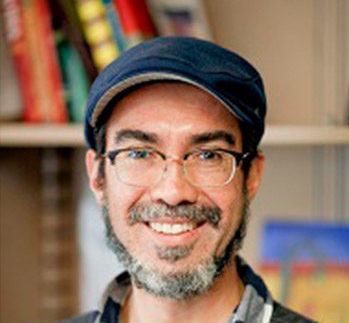Amplified through song
We asked the chair of the music department to give some context on the convergence of music and politics.

From Francis Scott Key to Woody Guthrie and Lee Greenwood to Public Enemy, music has long had a parallel relationship to politics. Sometimes subtle – and often not – messages get amplified through song. And whether rallying or incendiary, aural art is here to stay in the USA.
Much has already been written about the musicians involved (and those decidedly not) as part of the 58th Presidential Inauguration celebration in Washington, D.C. We sat down with Dr. Peter Schimpf, associate professor and chair of the MSU Denver Music Department, to talk about the past precedent and future implications of using music as a lens for the political process.
 MSU Denver: What has been the historical relationship of music and politics?
MSU Denver: What has been the historical relationship of music and politics?
Schimpf: From the Middle Ages onward, there’s been a deeply rooted connection between the two. Historically, musicians relied upon wealthy citizens to fund the arts through their patronage; we’re specifically talking about classical music as an expensive form. Fast-forwarding to the 20th century, the relationship became more complicated. As music started to rely more heavily on popular culture, collective groups started to buy recordings and concert tickets. This changed the dynamic of how artists could become politically involved. As opposed to relying upon a single group of patrons, spreading out allowed artists to take a particular stance and represent various populations without running the risk of ruining their careers.
MSU Denver: How has this relationship changed within the past decade?
Schimpf: The whole model of recording as a mode of funding changed with the advent of streaming services and the decline of the record companies. In some ways, musicians have more freedom than ever to directly market and distribute to their fans; the other side is the Balkanization of the music industry where things are so specific and niche that audiences continue to splinter into smaller and smaller sub-segments and affiliations. How exactly that affects music as it relates to politics in the long run, we’ll just have to wait and see.
MSU Denver: What’s a memorable inaugural performance that stands out?
Schimpf: Aretha Franklin’s performance at Barack Obama’s inauguration celebration was historic for many reasons. Here we had an artist with such a stature later in her career performing for the first African American president – even though it was just eight years ago, it spoke volumes for a momentous occasion. [American music] has been and continues to be so clearly defined by African American influence; to have her involvement and connection rise all the way to the White House was incredible.
MSU Denver: What’s been the role of protest music in social engagement?
Schimpf: Music is a medium by which people can be entertained, moved and informed. During the 1960s, we saw a collision of popular culture with protest music that affected people in an abstract sense with specific engagement. The result was all the things we associate with the ‘60s: challenging norms, opposing war and creating social movement. There was definitely a sense of a direct threat: With the draft, there was the very real chance that you could lose your life. It’s one thing to lecture audiences; it’s another to inspire them with art that forces them to pay attention. Protest music existed well before then, but that’s the decade it became a real force.
MSU Denver: Where do you see the intersection of music and politics heading in the next 10 years?
Schimpf: It’s interesting – I just saw a student’s recent Facebook post that said, “Well, at least we’re going to get a lot of good punk bands now.” I think there’s a perception among younger populations that popular music has a social responsibility to speak out against disenfranchisement and serve as a voice of humanity. It’s hard to say; maybe we’ll see a resurgence of the intersection of politics and music that rises to broad popularity. If enough people see a real threat to their lives and livelihood, it could engage large audiences out of comfort and apathy.

